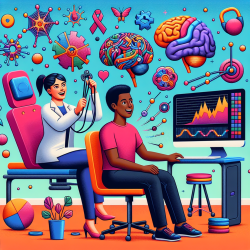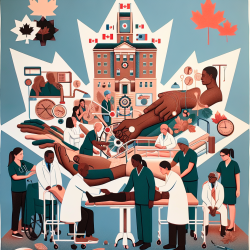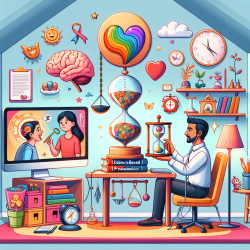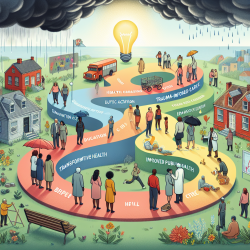Introduction
As a special education director, I am always on the lookout for innovative ways to enhance our educational practices, especially when it comes to supporting students with diverse needs. Recently, I came across a fascinating research article titled "Multivariate Lesion Symptom Mapping for Predicting Trajectories of Recovery from Aphasia" that offers exciting insights into aphasia recovery. This blog post aims to share these insights with practitioners, encouraging them to improve their skills and consider further research in this field.
Understanding the Research
The study conducted by Levy et al. (2024) focuses on predicting language outcomes in individuals recovering from aphasia after a stroke. The researchers utilized multivariate lesion symptom mapping and support vector regression models to predict language recovery trajectories over the first year post-stroke. By analyzing clinical imaging data, demographic variables, and initial aphasia severity, they were able to predict about 60% of the variance in long-term aphasia severity.
Key Findings
- Lesion location plays a crucial role in predicting language outcomes, especially at later stages of recovery.
- Initial aphasia severity is a strong predictor of short-term outcomes, but detailed lesion information enhances predictions for long-term recovery.
- Word finding and grammatical construction are predicted particularly well, whereas single-word comprehension and reading are more challenging to predict.
Implications for Practitioners
For practitioners working with individuals recovering from aphasia, these findings offer valuable insights:
- Personalized Predictions: Incorporating lesion location data into assessments can provide more personalized predictions for patients, helping to set realistic expectations for recovery.
- Targeted Interventions: Understanding the specific language domains that are likely to recover can guide targeted therapeutic interventions, optimizing resource allocation and therapy effectiveness.
- Neuroanatomical Awareness: Developing a deeper understanding of neuroanatomy and its impact on language recovery can enhance clinical decision-making and improve patient outcomes.
Encouraging Further Research
While this study provides a solid foundation for predicting aphasia recovery, there is still much to explore. Practitioners are encouraged to delve deeper into the following areas:
- Functional Reorganization: Investigating how the brain reorganizes itself functionally during recovery can provide additional insights into optimizing therapeutic approaches.
- Integration of Additional Predictors: Future models could incorporate factors such as brain health, diffusion tractography, and therapy interventions to further enhance predictive accuracy.
- Longitudinal Studies: Conducting longitudinal studies with larger sample sizes can help validate and refine the predictive models, ensuring their applicability across diverse populations.
To read the original research paper, please follow this link: Multivariate lesion symptom mapping for predicting trajectories of recovery from aphasia.










